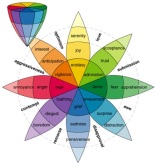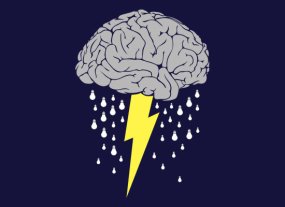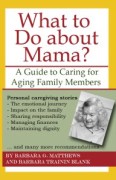Caregivers: Change and New Beginnings
Posted: May 13, 2015 | Author: Barbara G. Matthews | Filed under: Caregiving--Positives and Negatives, Emotional and Physical Challenges, Impact on Family Relationships | Tags: "What to Do about Mama?", acceptance, Age-in-Place, avoiding-crisis-mode, caregiving, caregiving-book, catharsis, challenging, change, communication, death and dying, declutter, electronic-tracking-system, emotions, empathy, everyobne-impacted-by-caregiving, expectations, feelings, forgiveness, healing, honesty, inventory-of-belongings, journaling, life-and-death-decisions, mother-in-law-quarters, new beginnings, organizing, pictures, planning, possibilities, preplanning, reality, therapeutic, wrapping-up | Leave a commentReaders and Followers:
I’ve come to a point that I am ready for a reprieve from my involvement with caregiving–at least for a while. I realize that this issue will one day reappear in my life in one form or another, so I will keep the door open to revisiting What to Do about Mama? in the future.

I’ve noticed that a lot of bloggers just sort of disappear from blogging, and I don’t want to do that to you folks who actually read or follow my blog.
The AgingCare.com article: New Beginnings Are Possible for Caregivers
(Home » Caregiver Support » Emotional Wellbeing » Articles » New Beginnings Are Possible for Caregivers ) by Carol Bradley Bursak struck me as relevant to my book writing and blogging endeavor. When I read it, I asked myself the question, “How has caregiving changed me?” So I’ve decided to address this topic in my “potentially” last blog post (at least for the foreseeable future).
THE QUESTION:
Does caregiving change you—either while you are a caregiver or once your caregiving has ended? I think caregivers would respond to that question in a variety of ways noting:
positives and negatives
resignations about what is and possibilities of what can be
CLICK ON THE LINK ABOVE TO READ THE ARTICLE
OR
SEE THE FOLLOWING SYNOPSIS
OR
SKIP TO: “How I Have Changed since Caregiving”
SYNOPSIS: In “New Beginnings are Possible for Caregivers,” Carol Bursak states that:
- The sameness of each day in your life as a caregiver can, at times, seem overwhelming and permanent.
- New beginnings for caregivers are far easier to suggest than to accomplish, especially since fresh beginnings generally come after significant endings.
- One route to finding what may be possible is journaling. Journaling can be a tool to examine where you were before caregiving, where you are now, and what you’d like your life to be if you could magically make it so.
Bursak goes on to say, “There’s something therapeutic about writing out how we feel and then reading the words that have come from our heart as well as our head.”
She then provides the following “loose guidelines” to structure your journaling:
Book one: vent your feelings and reinvent yourself
- Section one of book one is for venting.
- Section two is a place to note your caregiving routines
and what you’d want to do differently if you could.
- Section three is for digging into your past.

- Section four is about the future.
- Section five is for dreaming.

- Section six is for getting real.
Book two: Brainstorm how to take back your life.
Book three: Express your gratitude
- Remember that you’ve grown as a person who understands the needs of others.
- Include self-forgiveness for being imperfect.
In all the books:
Note your feelings
Bursak summarizes her article with the following: “The reality of ongoing caregiving is that most caregivers won’t have spectacular new beginnings as long as they are in the caregiving mode. However, self-examination and self-forgiveness can lead us toward a renewed outlook on life. This, in turn, may lead us to examine the ways that we can have a richer existence, within the confines of our caregiving obligations. And yes, that does count as a new beginning.”
HOW I HAVE CHANGED SINCE CAREGIVING:
I share the article “New Beginnings are Possible for Caregivers,” because for me…
Journaling helped:
to maintain my emotional health during caregiving
 to write What to Do about Mama?
to write What to Do about Mama?
While I was active in a caregiver’s support group, one of the group leaders suggested to me that I keep a journal, a method found to have a positive impact on physical well-being as well as emotional health.
- Writing about stressful events helps you to both face and deal with the situations that negatively impact your health. It knocks down the walls you have built so that you can gain understanding of yourself and your life circumstances.
- Writing about the difficult problems and feelings helps you gain understanding of other points of view. It is an effective tool to help you resolve differences with others.
- Writing about painful emotions helps decrease the power they have over you so you feel more at ease, able to move beyond the past and stay in the present.
Although I did not follow the detailed journaling format described by Carol Bursak, it was my dumb luck that most of the elements she indicated were applied—mainly by facing reality, noting feelings, and being honest. It was in this way that I was finally able to put an end to the incessant agonizing and SCROLLING I had been experiencing.
After my mother-in-law passed away I thought, “I have all this stuff; what can I do with it?” So, I wrote a book. The journal account simplified the process. My objective was to use caregiver knowledge and experience to help other caregivers overcome, or at least minimize, common challenges.
HOW I HAVE CHANGED:
- I experienced sudden and rapid physical challenges when my mother-in-law’s caregiving needs increased dramatically and family conflict accelerated. I had bilateral knee replacements four years ago, but continue to work out daily in an attempt to stave off physical decline.
- I have healed through the cathartic process of writing a book, blogging, and speaking publically about caregiving.
- I have learned to accept that the dynamics of my husband’s relationship with his family have changed, and therefore mine have, too. I understand that the past relationship was defined through his parents and they are now both gone. I accept that it is my husband’s right to choose to “NOT” have a relationship, even if I find that choice to be incredibly sad. I hold no grudges or resentment toward my husband’s family, and refuse to get mired down in feelings of being used or unappreciated. Life does not come with a manual. Everyone makes mistakes.
- I am preparing to leave my children in a much better place in regard to caregiving. That does not mean that I am absolving them of responsibility. I will not become stubborn or resistant to the “changing of the guard” that will come someday. It’s just that I am preplanning and organizing so that they will not have to make difficult decisions alone or clean up my messes. Although my husband refuses at this time to sell our home and move into a condominium nearer to our children, I am open to doing so, or even to living in a “mother-in-law house” on their property or having an “electronic tracking system” in our home. (See the Patriot News article “Staying in Touch” The Patriot-News | Page A13 Thursday, 7 May 2015 by Brandon Baily, the Associated Press, San Francisco @ harrisburgpatriotnews.pa.newsmemory.com/publink.php?shareid=0ffc7eaed
- My will is in order. My house has been decluttered. Pictures are mounted in books. I have completed an inventory of my belongings and have insisted that my children indicate their preferences. I am either indicating who gets what or designating who is responsible for distributing various categories.
- I have expressed my desire to “Age in Place” and am in the process of discussing the various options to accomplish this plan. I have planned ahead to pay for in-home support. I have made it clear that my children need to share the responsibility for any care that we need. I have also made it clear that I believe in quality versus quantity of life, and what steps are to be taken concerning life and death decisions.
- I have written a book, What to Do about Mama? which is a manual, of sorts, for them to follow.
- I realize I cannot control life. I’m just doing the best I can.
- I have been able to inform and assist others with caregiving problems and situations. I am fulfilled by using my knowledge and experience to help. Caregiving either impacts or will impact almost everyone.
- I understand that What to Do about Mama? is not a “sexy” topic, but believe that being prepared is better than reacting in a crisis mode. Just ask any caregiver.
Barbara Matthews










